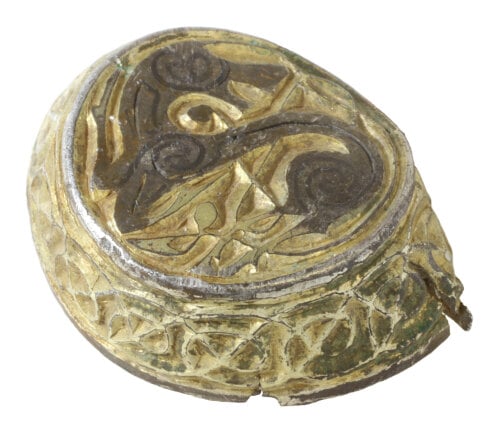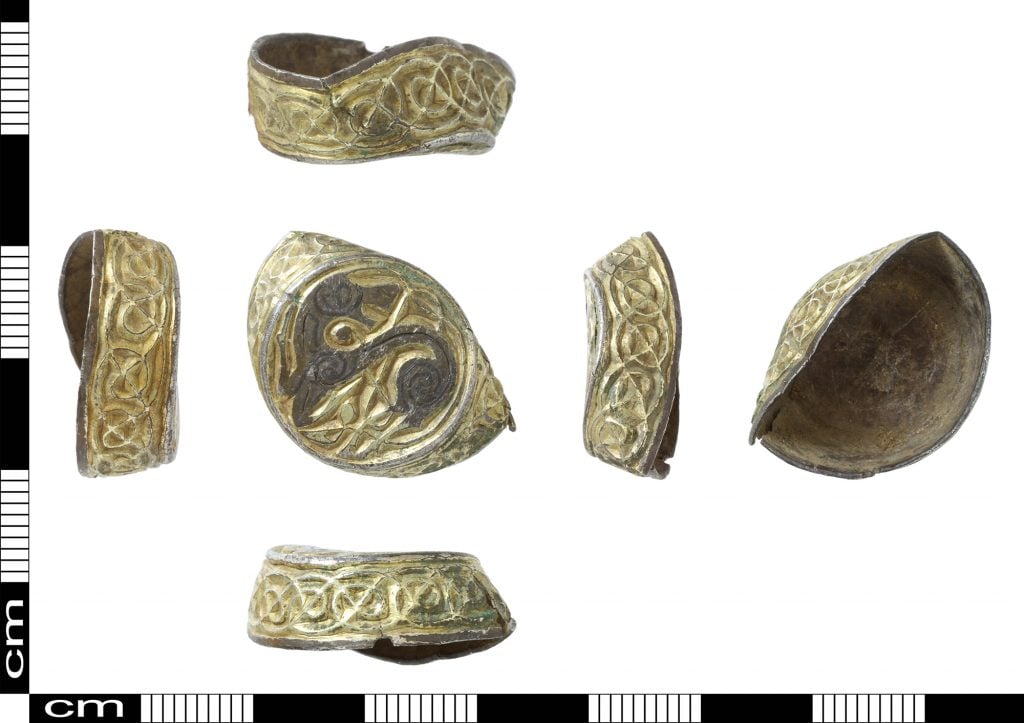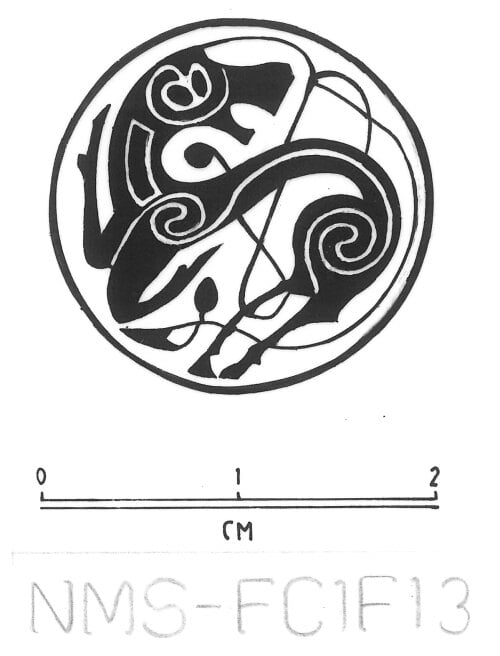Archaeology & History
A Mysterious Anglo-Saxon Artifact Found in the U.K. Stumps Archaeologists
One historian called it "completely unlike" anything found previously.

One historian called it "completely unlike" anything found previously.

Adam Schrader

A small artifact made of gilded silver was recently found by a treasure hunter in the village of Langham in Rutland, England, using a metal detector—and nobody is quite sure what it is. But because of its composition of precious metal, it is considered a potential treasure under the U.K.’s Treasure Act of 1996.
The 8th-century artifact is a hollowed cylinder of about 0.7 inches in diameter and 0.3 inches in height, found bent inwards with a small crack, with partial gilding and niello inlay, according to the U.K’s Portable Antiquities Scheme. The top of the artifact is decorated with the profile of an animal, the legs and tail of which dissolve into “chip-carved interlace with plant elements,” as described by the organization. Such animal drawings were described as characteristic of Mercian style.

The unidentified early-medieval object. Photo: Norfolk County Council.
“There are few parallels to the shape of this object, and so it is difficult to work out its function,” the listing in the Portable Antiquities Scheme’s database reads.
The organization noted that another flat-topped but much taller item, made from copper alloy, had previously been discovered. Two other conical and domed silver objects from the same time period in the, but larger, have also been recorded with animal decorations, partial gilding and niello inlay.
“It’s so tiny and yet it was created just as carefully as something like a Bible or piece of jewelry,” Helen Geake, a historian, told the BBC. She called it “completely unlike” the other similar mystery items.

Analytical drawing of the early-medieval unidentified object. Photo: Norfolk County Council.
Geake said that the spiral pattern on the mysterious Anglo-Saxon artifact is recognizable from the Book of Kells or Lindisfarne Gospel, two Celtic illuminated manuscripts, and described the animal on it as possibly a horse.
“We do have evidence that gold and silversmiths were also doing illuminations in manuscripts at this time, for example,” she told the BBC.
Geake suggested that the artifact might have once topped a wooden staff and said it was made by someone “with a real eye for loveliness.”
More Trending Stories:
Art Dealers Christina and Emmanuel Di Donna on Their Special Holiday Rituals
Stefanie Heinze Paints Richly Ambiguous Worlds. Collectors Are Obsessed
Inspector Schachter Uncovers Allegations Regarding the Latest Art World Scandal—And It’s a Doozy
Archaeologists Call Foul on the Purported Discovery of a 27,000-Year-Old Pyramid
The Sprawling Legal Dispute Between Yves Bouvier and Dmitry Rybolovlev Is Finally Over